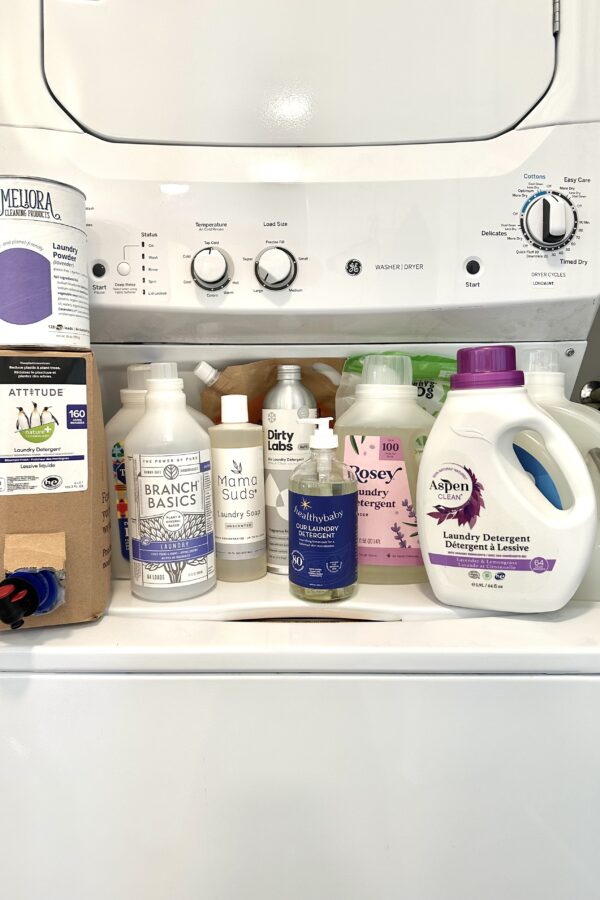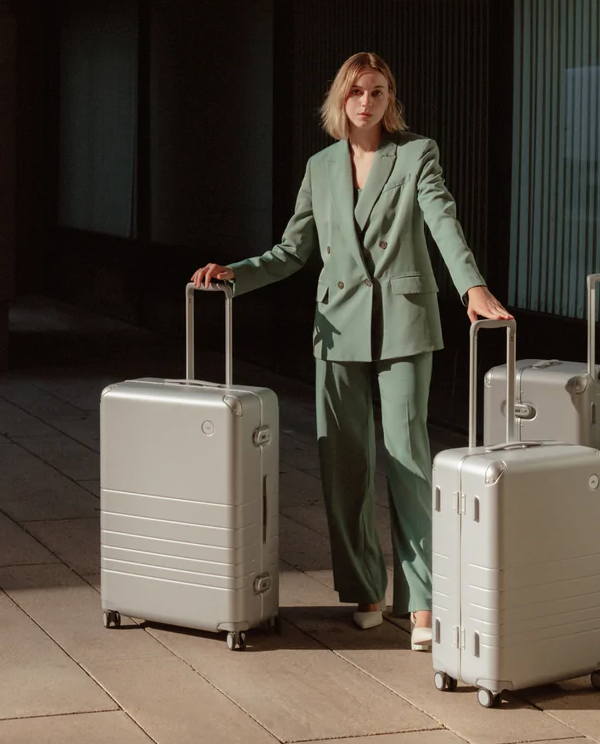Did you know that the waterproof coatings on your favorite hiking boots, backpack, tent, or other camping gear may be leaching toxic forever chemicals into your bloodstream and the environment?
Since the 1940s, manufacturers in many industries, including the outdoor equipment industry, have added per- and polyfluorinated substances (PFAS or alternatively, PFCs) to coatings on products to make them more resistant to moisture, dirt, and oil. The danger of these “forever” chemicals is that they never break down, leading to widespread contamination of the natural environment. They’re also linked to a variety of adverse health effects, including cancer and hormonal disruption.
The good news is that you can protect yourself and the environment by buying gear from companies that have already banned PFAS or are currently phasing them out.
RELATED: Here’s where to find PFAS-free, natural, and non-toxic sleeping bags!
Table of Contents
This guide contains affiliate links, which means we may earn a commission if you decide to make a purchase. As always, we only make recommendations that are genuine. Featured Image Credit: Jen Ottolino
[Editor’s Note: Unfortunately, PFAS are now ubiquitous in our environment. Therefore, when we say “PFAS-free,” what we really mean is that PFAS are not intentionally-added to products. Technically, it’s still possible that minimal amounts of PFAS can make their way into products through manufacturing. However, the recommended brands below are making every effort to avoid PFAS in every way possible.
On another note: You’ll notice that in other places on The Filtery, we recommend avoiding synthetics when possible (like with clothing and bedding, for example). When it comes to outdoor gear, however, we take a different approach. Synthetic fabrics such as nylon can help provide water-resistance, prevent mold/mildew growth, and last a long time. In our opinion, it’s better to have a PFAS-free synthetic tent, for example, than a tent made from organic cotton but that is either treated with toxic PFAS or can’t hold up to the elements.]
PFAS-Free Hiking Boots & Shoes
Jack Wolfskin
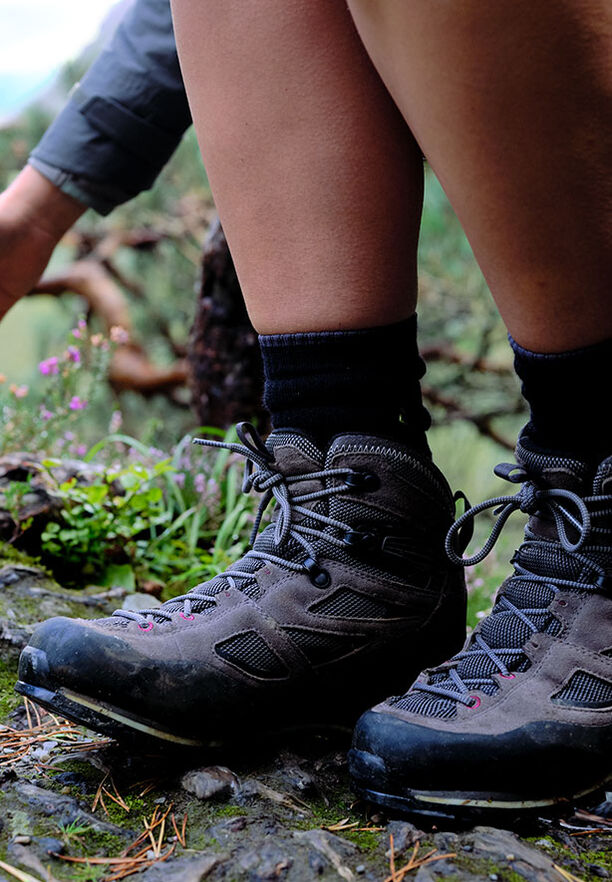

Founded over 40 years ago in Germany, Jack Wolfskin is known for its environmental responsibility and innovation, which harnesses the power of German engineering, technology, and design. It was one of the first outdoor clothing companies to ban PFAS from all its products, having been totally PFAS-free since 2019.
Jack Wolfskin makes sturdy waterproof footwear for hiking, trekking, and mountaineering. The shoes offer high levels of durability, stability, and traction according to a recent review. In addition to women’s and men’s shoes, it offers children’s and unisex options.
Which Jack Wolfskin products are PFAS free: All Jack Wolfskin products including its footwear are entirely PFAS-free.
What waterproofing solution Jack Wolfskin uses instead of PFAS: The company uses an in-house waterproofing technology called Texapore in its waterproof footwear and apparel.
Where/how to purchase Jack Wolfskin shoes: Purchase Jack Wolfskin footwear directly from the website or use the store finder for local shopping options.
KEEN Footwear
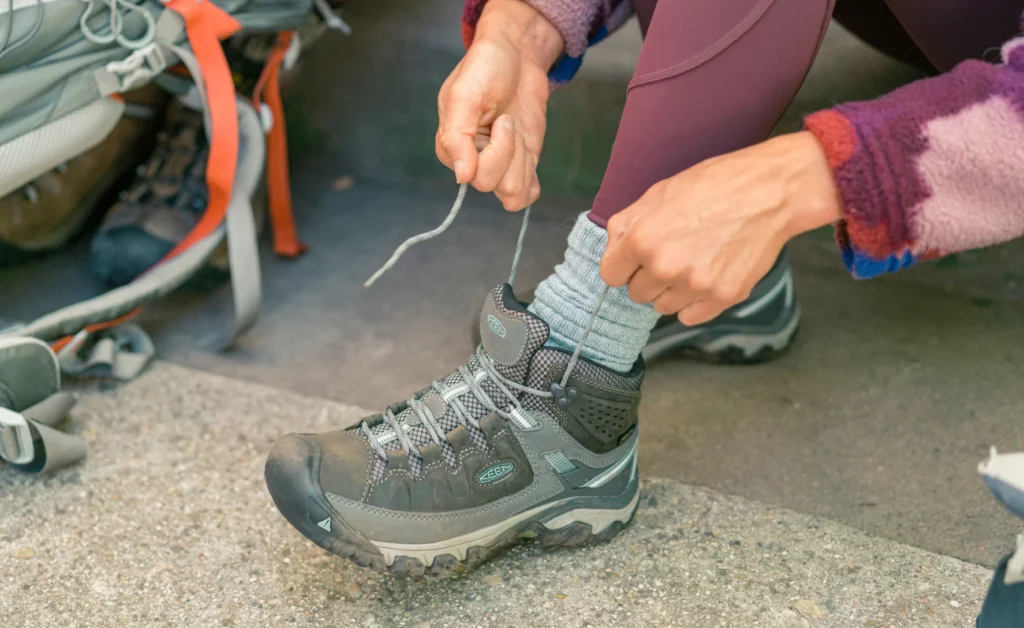

KEEN is a leading US maker of sport sandals and hiking footwear. Its hiking boots and shoes are a popular choice for day hikers, comfortable enough to wear all day but sturdy enough to withstand the elements.
As of mid-2023, KEEN is the only major footwear company in the US to have banned PFAS in all its products, keeping its promise to provide customers with “forever shoes, not forever chemicals.” It took KEEN a few years to work the kinks out of its supply chain, but by 2018, all its products were PFAS-free. You can read about Keen’s inspiring “detox journey” in its downloadable Green Paper.
Which KEEN products are PFAS free: All Keen products manufactured after 2018 are PFAS-free, including its kids’ shoes, which meet the same standards as all the other products.
What waterproofing solution KEEN uses instead of PFAS: Keen sources its non-toxic alternatives to PFAS from the chemical suppliers Rudolf and 3M, both of which provide safe and effective durable water repellency (DWR) treatments that are free from fluorinated chemicals.
Where/how to purchase KEEN shoes: Keen footwear is available for purchase directly from its website and through online and in-store retailer worldwide, including Zappo’s, REI, and Dick’s. Please check the website for more details.
PFAS-Free Outdoor Backpacks
Deuter
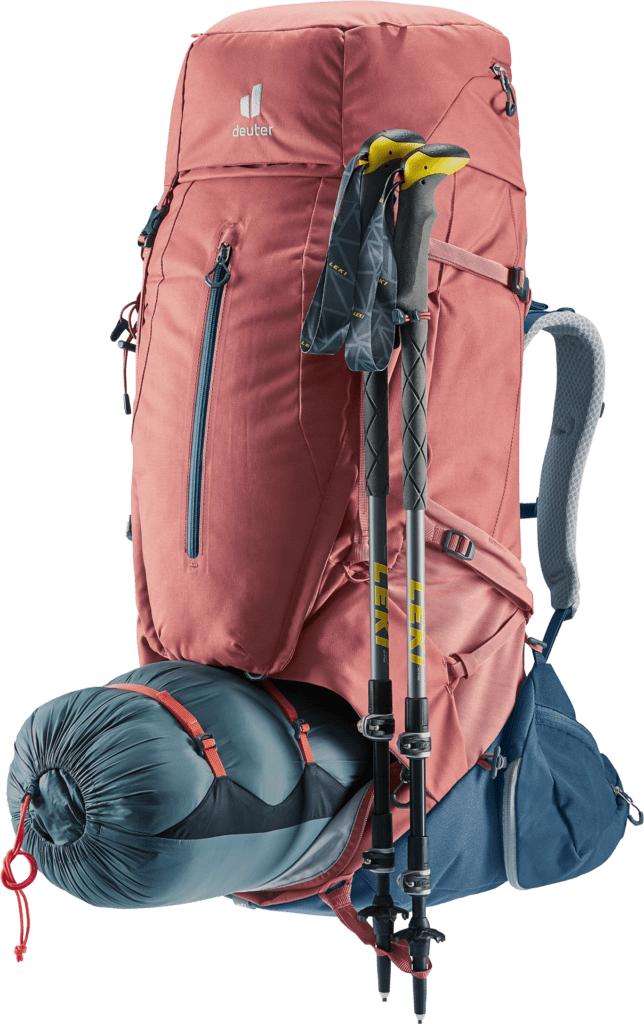
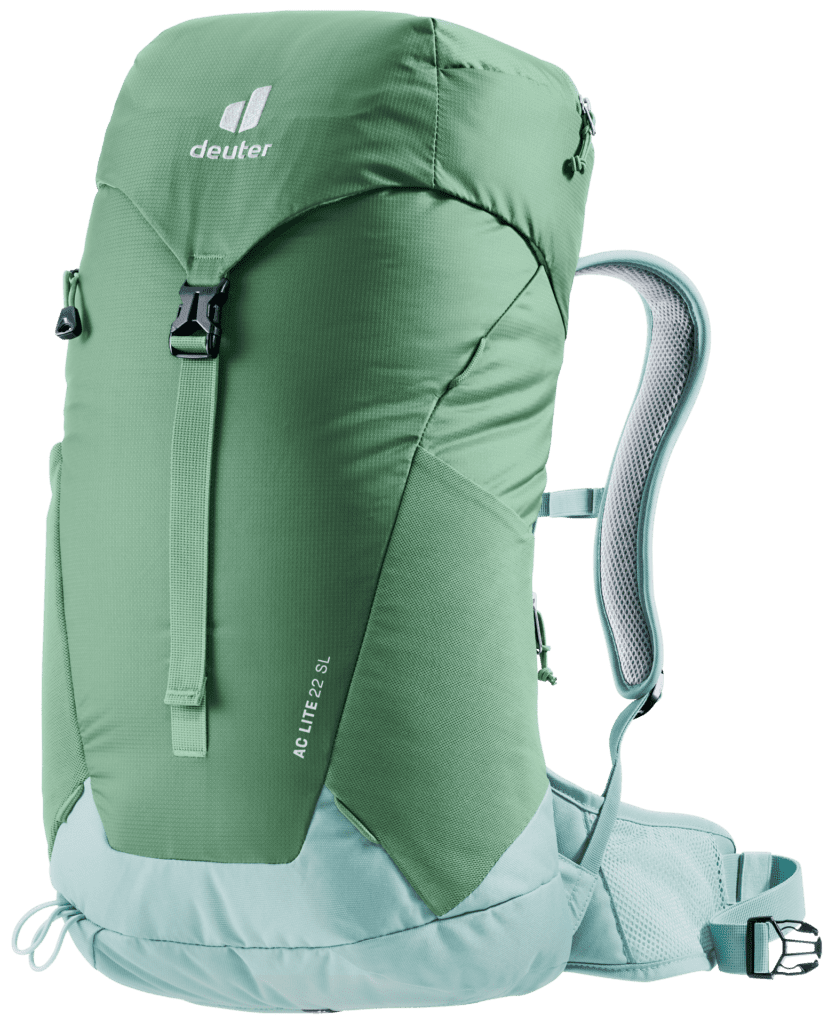
Founded in Augsberg, Germany in 1898, Deuter produces durable and reliable nylon and polyester backpacks for hiking, backpacking, mountaineering, and travel, some of which have laptop sleeves. The company is known for producing solid bags that last a very long time and is committed to environmental sustainability. It has been a PFAS-free company since 2020.
Which Deuter products are PFAS free: Deuter has been a PFAS-free company since 2019.
What waterproofing solution Deuter uses instead of PFAS: The company uses a DWR impregnation in its backpacks that it claims is “harmless to health and the environment.” When asked about the specific chemical formula of its DWR impregnation, a company representative explained that the substances used in the waterproofing solutions differ by product. But all the chemicals the company uses are sourced from suppliers that are REACH compliant, which is a European standard that is slightly more stringent than those in the U.S.
Where/how to purchase Deuter backpacks: Dealers in many parts of the world carry Deuter products, including the popular outdoor retailers REI and Decathlon. Search for a store near you or purchase products from Deuter’s online shop. Delivery is via DHL or DPD if you live in Europe, with free shipping for orders over 50 euros.
Fjällräven
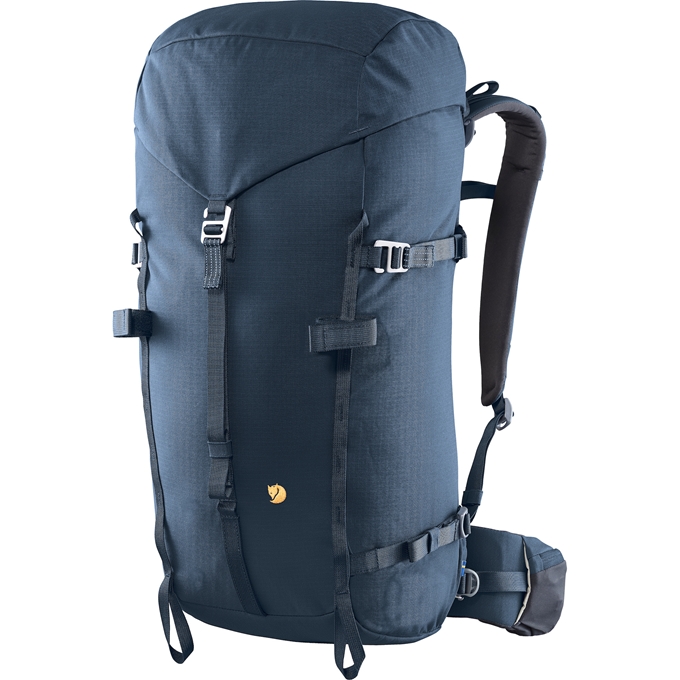
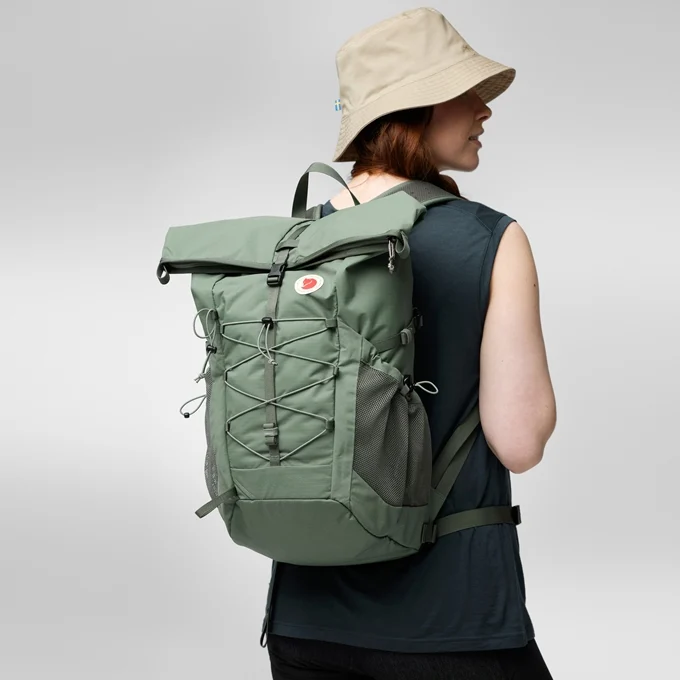
Based in progressive Sweden, Fjällräven was among the first producers of outdoor gear and apparel to move toward eliminating PFAS. But like other companies, its process of going PFAS-free had a few bumps along the way. It required finding non-toxic waterproofing alternatives that could repel moisture in extreme weather conditions and coordinating numerous players in supply chains.
Fjällräven produces a wide range of backpacks for outdoor and everyday use. The packs are not cheap, but they offer superior performance and tend to make customers very happy. One reviewer even penned an ode to her bag in The Strategist entitled, “The Best Thing I Bought This Decade Was My Fjällräven Kanken Laptop Bag.”
Which Fjällräven products are PFAS free: All of Fjällräven’s products are now PFAS-free. The company did have a hard time finding a suitable alternative for its waterproof zippers, which was the last piece of the PFAS-free puzzle. However, Fjällräven has informed us that they have now fully transitioned to PFAS-free waterproof zips!
What waterproofing solution Fjällräven uses instead of PFAS: Fjallraven uses a combination of special fabrics and an in-house PFAS-free waterproofing technology to protect all its bags from the elements. Its everyday bags are designed to be water resistant, while its mountaineering bags are designed to withstand extreme weather conditions.
Where/how to purchase Fjällräven backpacks: To purchase Fjällräven tents and other products, you can shop directly on the website. Otherwise, use the store locator for local shopping options.
Ortovox
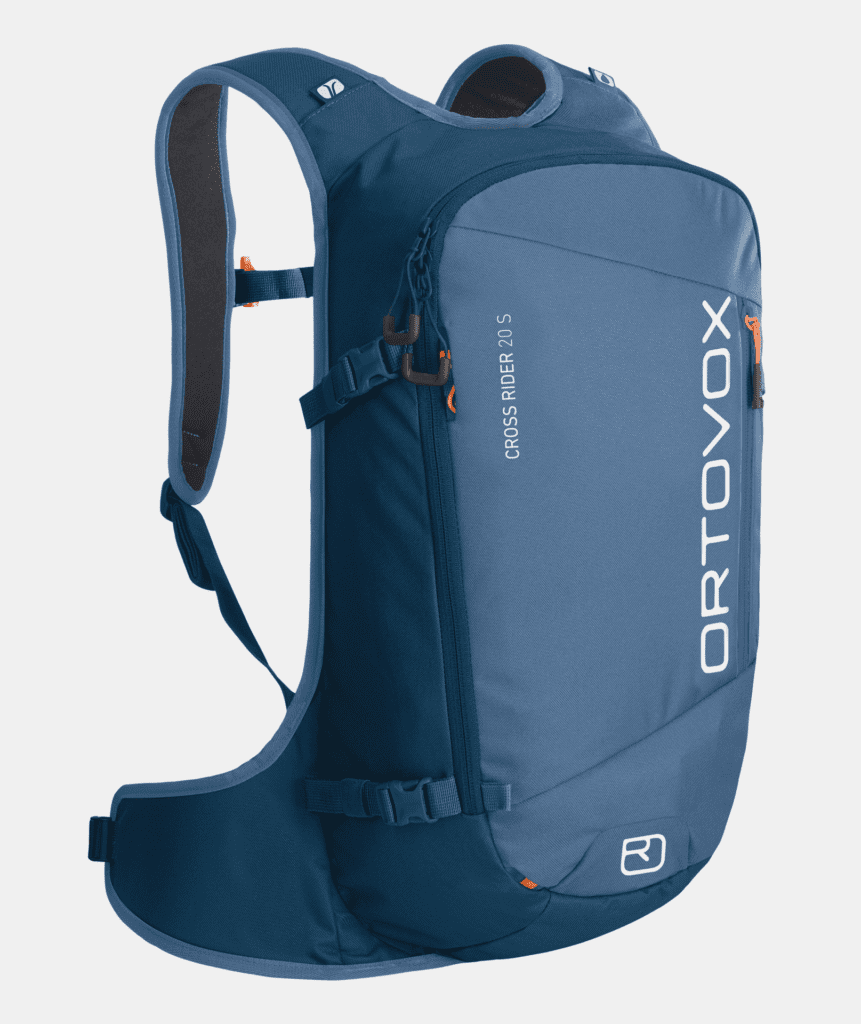
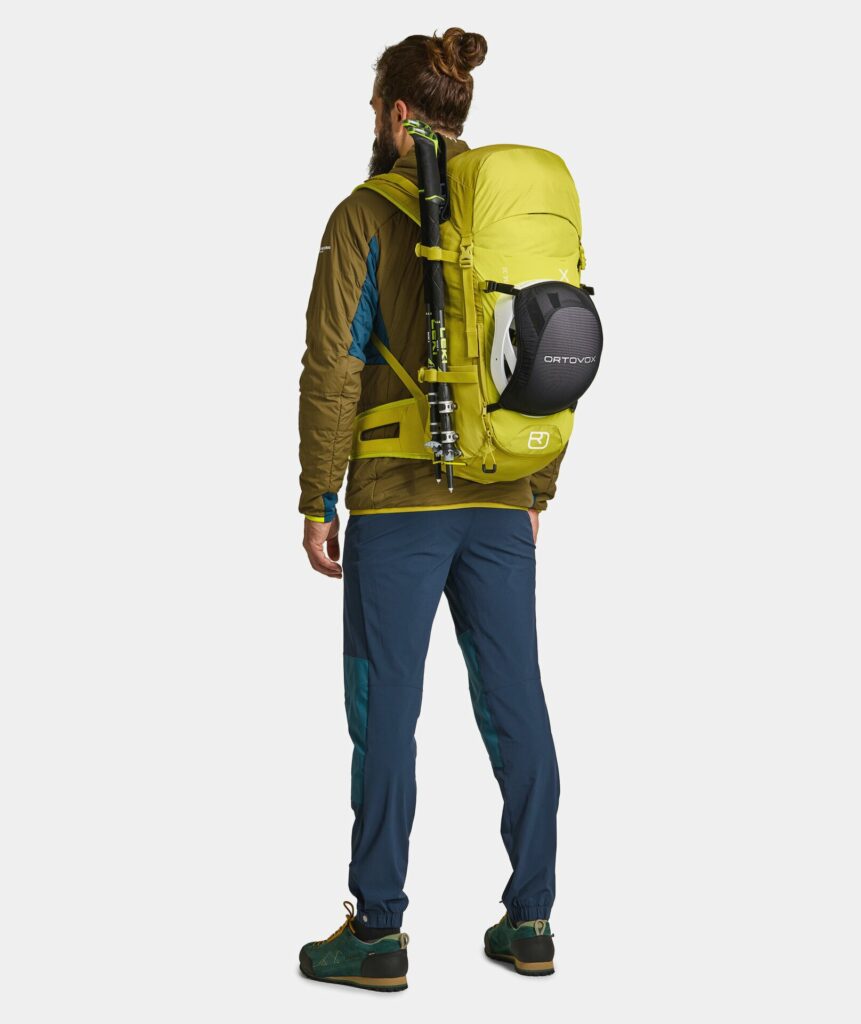
Gerald Kampel and Jürgen Wegner founded Ortovox in 1980 as a supplier of avalanche-safety transceivers, and the company began producing its first backpacks in 1985.
Today, the company continues to produce mountain safety equipment along with a range of high-performance mountaineering and hiking backpacks and men’s and women’s apparel made with sustainably sourced merino wool.
Ortovox has always been about outdoor safety, so it comes as no surprise that the company would take a stand against using toxic chemicals in its products. Its goals are to become completely PFAS-free in 2023 and also to become climate neutral.
Which Ortovox products are PFAS free: In 2023, 99.13% of Ortovox’s entire summer collection is PFAS free. Ortovox backpacks have been PFAS free since 2020.
What waterproofing solution Ortovox uses instead of PFAS: The company uses a polyester-based plastic Sympatex membrane that is waterproof, windproof, breathable, durable, and recyclable.
Where/how to purchase Ortovox backpacks: Shop online with delivery via DHL or DPD to almost all European countries, or search for a dealer near you.
PFAS-Free Tents
Fjallraven
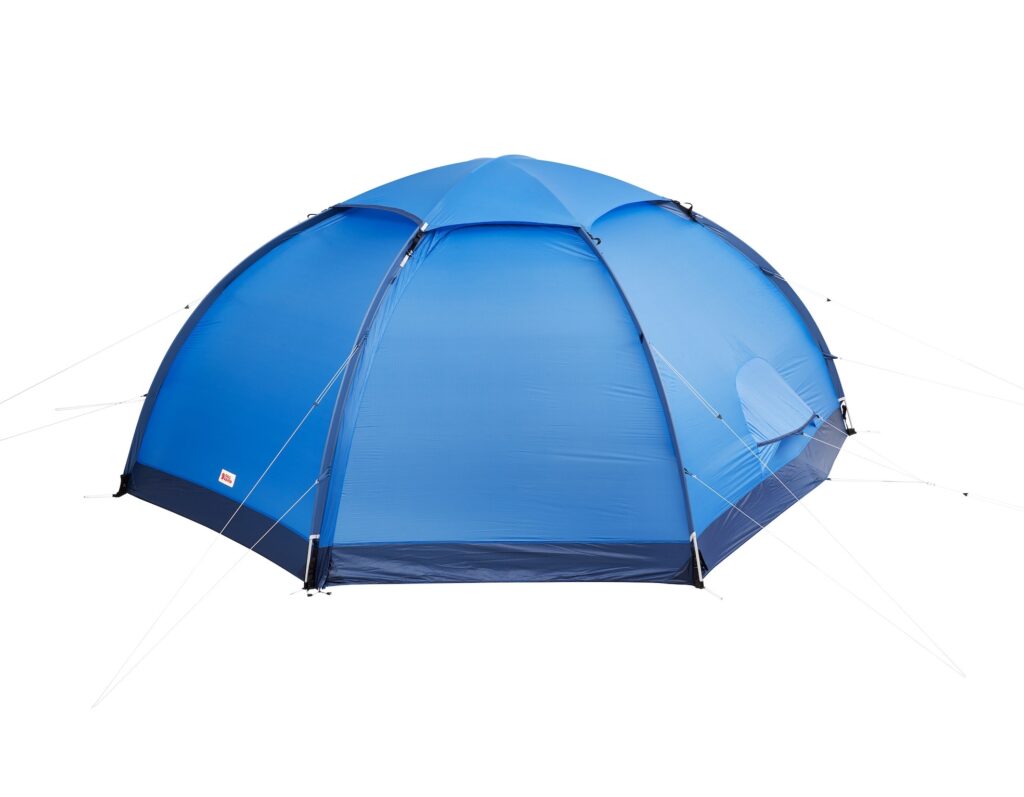

Fjällräven’s line of tents may not be extensive, but it’s certainly impressive according to Outdoors Magic. The tents are in three families: light Abisko tents, which are ideal for backpacking; more durable Keb tents for year-round use; and Polar tents for extreme winter weather conditions.
Which Fjällräven tents are PFAS free: Since 2012, all Fjällräven’s product materials have been PFAS-free with the exception of its zips. As mentioned earlier, the company continues to search for a suitable alternative for its zippers.
What waterproofing solution Fjällräven uses instead of PFAS: The company applies an in-house waterproofing technology to its tents, which are constructed with durable and water-resistant polyester and polyamide fabrics.
Where/how to purchase Fjällräven tents: To purchase Fjällräven tents and other products, you can shop directly on the website. Otherwise, use the store locator for local shopping options.
Nemo
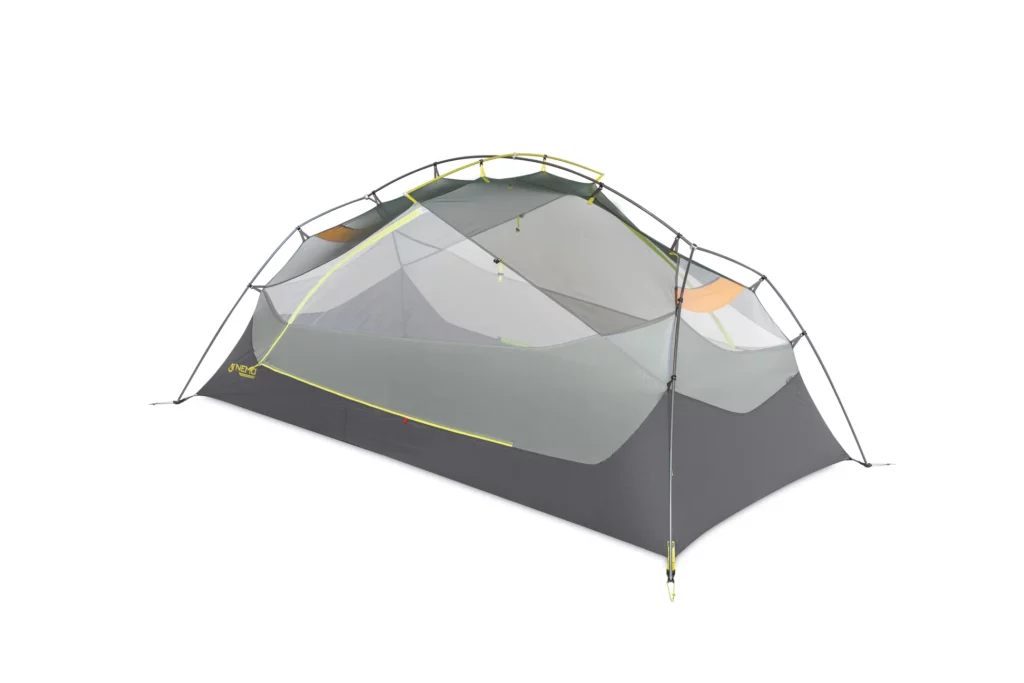
NEMO was born after its founder Cam Bresinger spent a sleepless night on the side of a mountain braving wind gusts in a cruddy tent. Bresinger launched Nemo in 2004 and quickly began winning awards for his innovative design of outdoor gear. Today, NEMO is known for creating tents that optimize weight, livability, and durability according to Switchback Travel, which lists the company among the top tent brands of 2023.
Which Nemo tents are PFAS free:
What waterproofing solution Nemo uses instead of PFAS: The company uses a PU-based DWR to waterproof its tents.
Where/how to purchase Nemo tents: Shop for tents on the NEMO website or locate a dealer near you.
The Tent Lab

Mike Secot-Scherer founded The Tent Lab to offer his unique handcrafted tents to the world. His state-of-the-art tents represent the best design and technology in the industry. They are as non-toxic as possible, free of all PFAS and noxious fire-retardant chemicals. The company is run on a platform of socially and environmentally responsible business practices. On the policy section of its website, you can view a comprehensive list of the company’s “banned baddies” as it refers to them, meaning the harmful chemicals it avoids.
Which Tent Lab products are PFAS free: The company proudly states that its tents are free of “PF anythings.”
What waterproofing solutions The Tent Lab uses instead of PFAS: The tents are 100% polyester, which means that unlike nylon tents, they don’t sag when wet. All tents have tw waterproofing elements: a PU coating and a silicone water-repellency treatment. Note that the PU coating gives the new tents a faint “milky” odor that goes away quickly with use or a quick wash of the tent’s inner surface.
Where/how to purchase The Tent Lab products: Purchase tents directly from the website. The company ships to the US, Canada, South America, the UK, Europe, Asia, and Australia. Shipping costs are higher to destinations outside the US.
Extra Waterproofing Products
A downside of PFAS-free waterproofing is that it tends to wear off more quickly. To fix this problem, you can use a PFAS-free spray or wash-in product that provides waterproofing without relying on fluorinated chemicals. The following companies offer PFAS-free spray-on or wash-in products.
Stay Informed
Check Green Policy Science’s detailed list of PFAS-free products for regularly updated information. For the latest scientific and policy developments related to PFAS, check PFAS Central.
And to stay updated on PFAS in the headlines, new product guides, and more, sign up for our weekly email newsletter.

